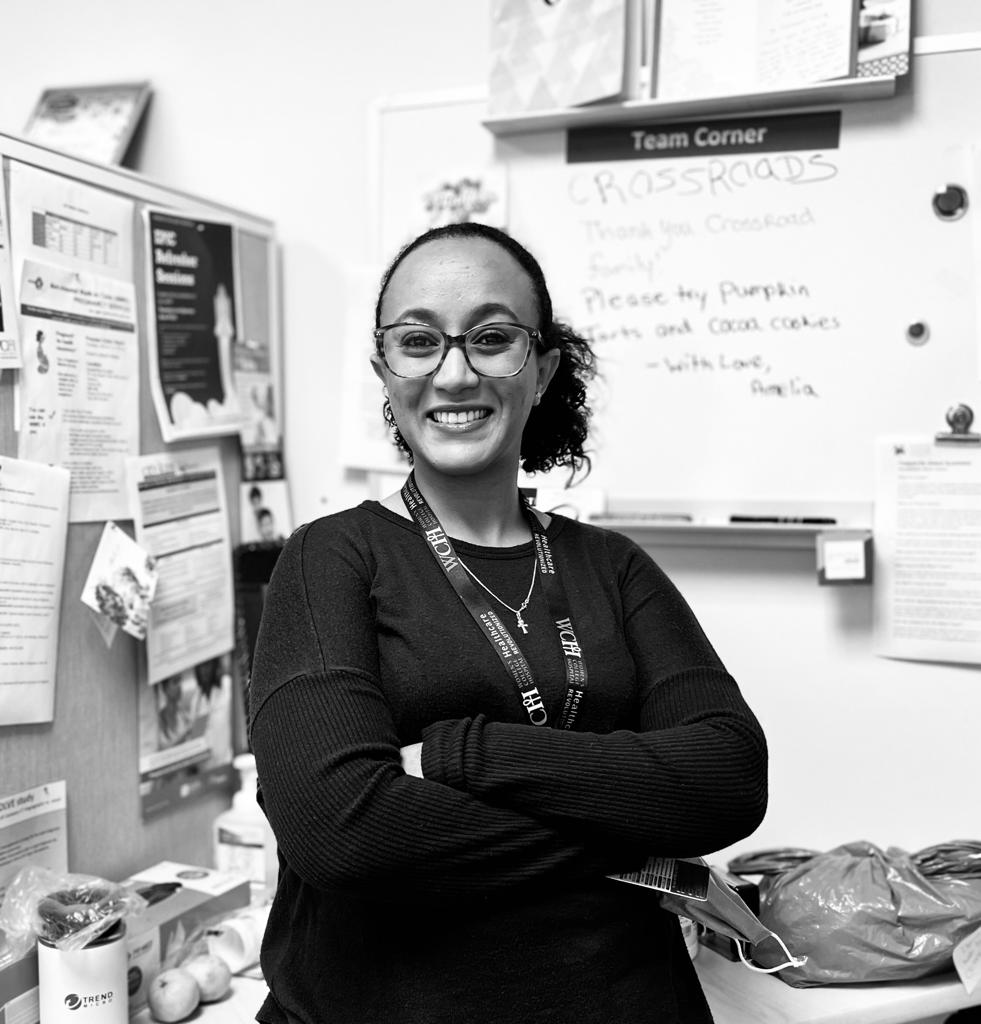We are Women’s offers the WCH community a chance to get to know each other and share our stories.

Name: Semhar Musael
Pronouns: She/Her
Title & Department: Peer Navigator, The Crossroads Clinic
On the WCH team for: Since May 2nd, 2022 (Almost 7 months)
1. What does your typical workday look like?
As the Crossroads Clinic Peer Navigator, my role focuses on connecting our patients to the health, social, and community resources that they need. As refugee newcomers, it can be difficult to access needed services due to language barriers, lack of familiarity with our complex systems, and other challenges. Together with the patient and their primary care provider, we identify what priorities they have and what types of support they need. There’s a wide range of supports I provide, both at the clinic and in the community!
On a given day, my activities might include: accompanying a patient on the TTC to a specialist appointment at another hospital, helping a mom fill out a registration form for subsidized daycare, looking for a dentist with free services in a family’s neighborhood and booking them an appointment, explaining to someone how to take the bus to their nearest foodbank and how they can use their smartphone to get directions to other locations, calling to check in and provide emotional support to a patient undergoing cancer treatment, and connecting with a patient’s Ontario Works social assistance caseworker to advocate for them to receive the financial and social benefits they are entitled to.
2. What excites you the most about working at WCH?
The happiness and smile on the patient’s face after you help them to accomplish their challenging tasks is so rewarding. It’s a motivating factor for me to come to work every morning!
3. How does your work contribute to creating a positive patient experience?
This question should be mainly answered by the patients, but they seem to feel comfortable to reach out to me with their questions and concerns and see me their “go to person”. We see patients being able to better connect with the health and social resources they need, overcoming barriers to access. For example, a patient who was unable to complete her colonoscopy four times because she didn’t have anyone to take her home after the procedure was finally able to complete this important test because I was able to accompany her. A single mom struggling with post-partum depression came back weeks later with a big smile after we went together to an EarlyON centre and recreation centre where she could connect with other parents and babies for ongoing social support.
4. Tell us one to three things that your colleagues would be surprised to learn about you!
- I am very interested in anthropology!
- I am a good cook. This was a discovery for me since I came to Canada two years ago because I never got the chance to cook for myself when I was back home in Ethiopia.
- When I was 23, I was able to create an NGO in Addis Ababa, Ethiopia to help 30 children from a nearby slum area to go to school comfortably. I organized my group of friends to raise funds every month, which was used to pay for the kids’ breakfast and school supplies (at that time, many children who were going to public school used to faint in classrooms because they didn’t have breakfast; fortunately, now the government has started a school-based nutrition program and provides food to children in need). We also used to tutor the children in our spare time.